When the sun goes down in Paris, and the city’s famous cafés quiet down, there’s one place where the real pulse begins: Pachamama Paris is an underground electronic music venue in the 10th arrondissement that blends raw sound, global rhythms, and an unfiltered crowd into something more like a ritual than a night out. Also known as Pachamama, it opened in 2019 and quickly became a magnet for DJs, travelers, and locals who don’t just want to hear music-they want to feel it.
It’s Not Just a Club. It’s a Sound Temple.
You won’t find velvet ropes or dress codes at Pachamama. No bouncers checking your ID with a flashlight. No VIP sections with bottle service. Instead, you walk through a narrow doorway in a quiet side street near Gare du Nord, down a dimly lit staircase, and into a space that feels carved out of the earth. The walls are lined with reclaimed wood and hanging textiles from Morocco, Peru, and Indonesia. A single beam of colored light cuts through the haze. The bass doesn’t just vibrate your chest-it moves your bones.
This isn’t a place for casual listeners. It’s for people who show up because they’ve heard stories. Someone whispered about a set from a Berlin techno legend who played a 6-hour set on a broken mixer. Someone else talked about a Colombian cumbia DJ who mixed in Andean flutes while the crowd danced barefoot on the wooden floor. These aren’t rumors. They’re weekly occurrences.
The Sound Is the Star
Pachamama doesn’t book headliners. It books voices. The lineup changes every week, but the rule is simple: if the music moves people in ways they can’t explain, it gets played. You might hear deep house from Lagos one night, ambient techno from Kyoto the next, and a live percussion ensemble from Oaxaca the following Friday. The sound system? A custom-built setup with 12 subwoofers and hand-tuned speakers from a local Parisian engineer who spent two years perfecting it. No brand names. No marketing. Just pure, unfiltered frequency.
One regular, a 32-year-old sound designer from Lyon, told me he comes here every Thursday because it’s the only place in Europe where he can hear the low end below 20Hz-something most clubs filter out. "It doesn’t just hit you," he said. "It wakes something up inside. Like your body remembers a rhythm from a time before language."
Who Shows Up?
The crowd at Pachamama is a mosaic. You’ll find students in thrifted coats, retired jazz musicians, French farmers who drive in from Normandy just for the weekend, Nigerian expats who run underground record shops, and tourists who stumbled in after missing the last metro. There’s no pretense. No one’s here to be seen. Everyone’s here to be felt.
On any given night, you’ll see a 70-year-old woman in a floral dress swaying with her eyes closed while a young man in a hoodie breaks into an improvised dance that looks like a mix of capoeira and free jazz. No one watches. No one judges. You just move with it.
It’s rare in a city like Paris, where nightlife often feels curated for Instagram, to find a space that refuses to perform. Pachamama doesn’t care if you post a story. It only cares if you showed up with your whole self.
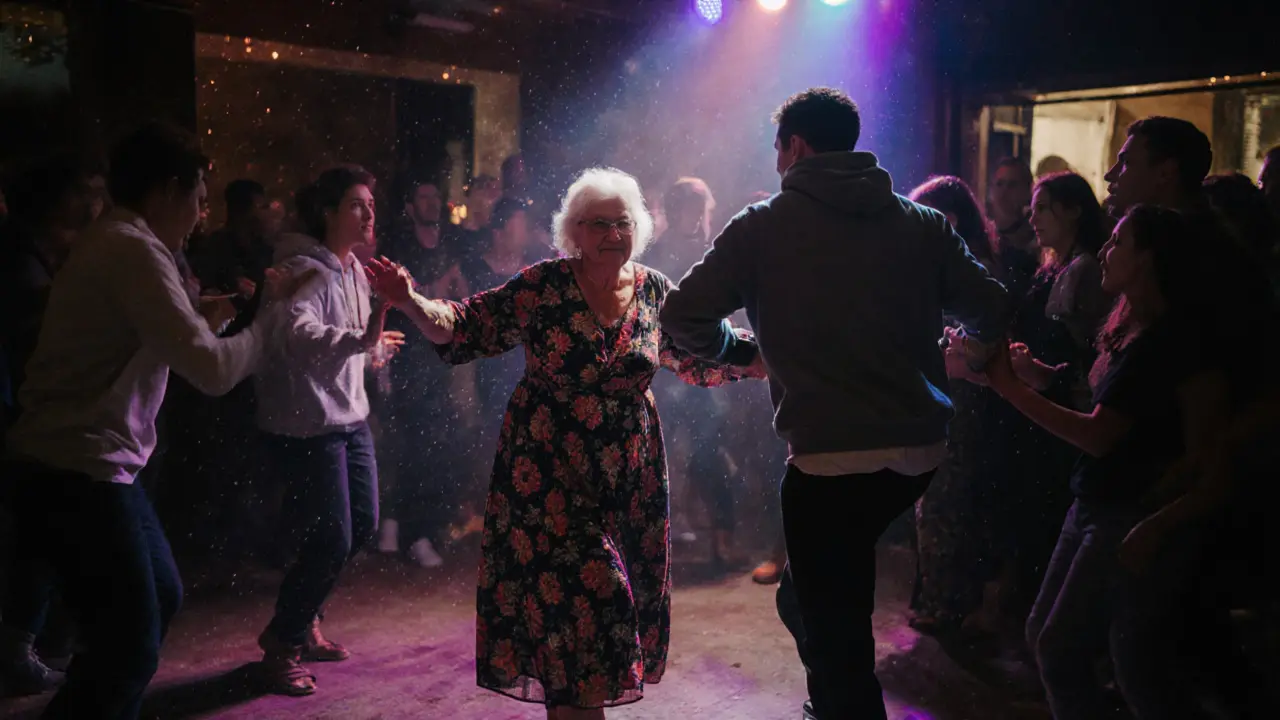
What Makes It Different?
Most clubs in Paris operate like businesses. They have opening hours, ticket tiers, drink menus, and social media campaigns. Pachamama operates like a living thing. It opens when the energy is right. Sometimes that’s 10 p.m. Sometimes it’s 2 a.m. Sometimes it doesn’t open at all-if the DJ cancels and no one else steps up, the doors stay shut. No announcements. No refunds. Just silence.
There’s no official website. No ticketing platform. You find out what’s happening by word of mouth, through a cryptic Instagram post at midnight, or by following the scent of incense drifting from the alley. The cover charge? Whatever you feel like giving-5 euros, 20 euros, nothing at all. There’s a jar on the bar with a sign that says, "Pay what you can. Stay as long as you need."
And yet, it’s never empty. People come because they trust it. Because they’ve been changed by it. Because they know that if you show up with an open heart, you’ll leave with something you didn’t know you were missing.
The Music Is the Medicine
It’s not just about the beats. It’s about what happens when you let go. One woman told me she came here after her divorce. She didn’t know anyone. She just needed to feel something other than grief. She stayed until 6 a.m., dancing alone in the corner, crying while she moved. The next week, she came back. And the week after that. She didn’t say why. She didn’t have to.
There’s a reason Pachamama has no security cameras. There’s no need. The energy inside keeps things safe. People look out for each other. Someone always brings extra water. Someone always has a spare jacket. If you collapse from exhaustion, someone will hold your head while another person finds a quiet spot to lie down. No one calls an ambulance. No one panics. They just keep the music going.
How to Find It
You won’t find Pachamama on Google Maps. It doesn’t show up in most tourist guides. The address? 12 Rue du Faubourg Saint-Martin, 75010 Paris. But that’s not enough. You need to know when to go. Follow @pachamama.paris on Instagram-if they post a photo of a single candle in the window, it’s open. If it’s dark, it’s closed. No other clues.
Arrive early. The line forms outside before doors open. Don’t expect to get in if you show up after midnight on a Friday. The space holds 180 people max. It’s never full by design. The air needs room to breathe. The sound needs space to resonate.
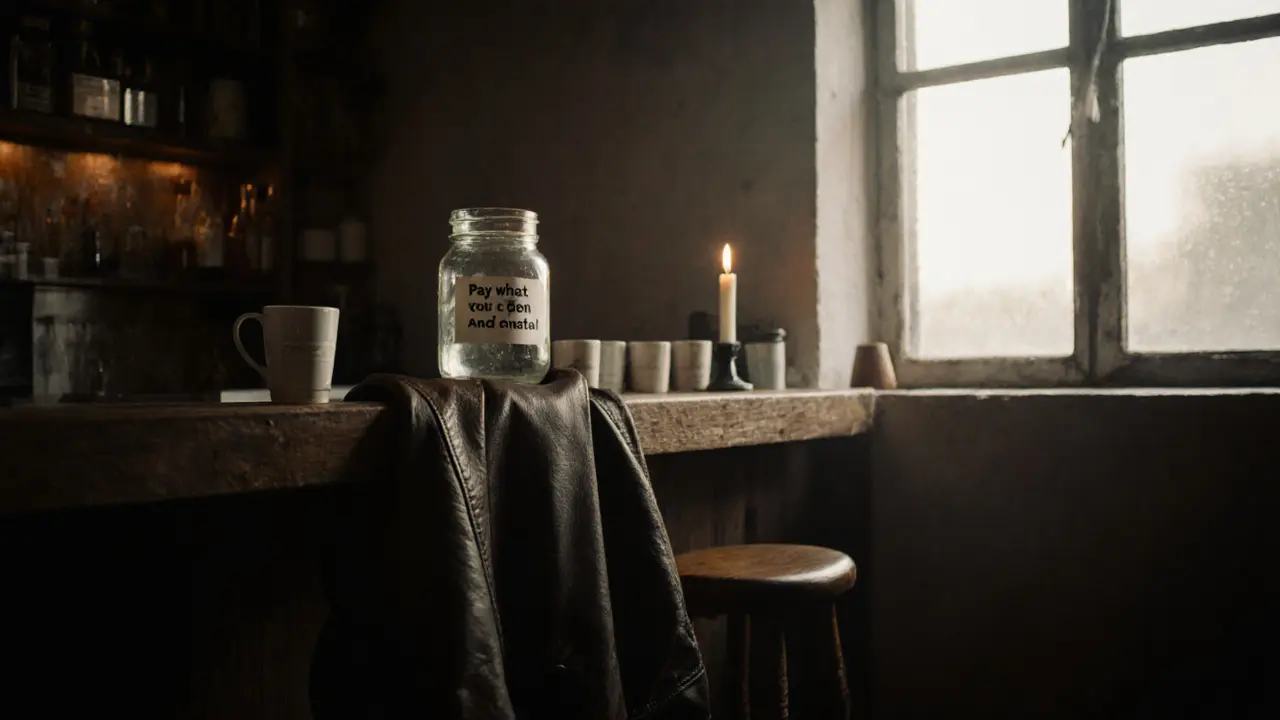
What to Expect
- No drinks served in plastic cups. Everything is in glass or ceramic.
- No phones on the dance floor. There’s a bin near the entrance-drop yours in if you want to stay present.
- Food? Sometimes. A small kitchen serves vegan empanadas or lentil stew from 11 p.m. onward, cooked by a local chef who used to run a food truck in Oaxaca.
- There’s no stage. The DJ plays from the center of the room, surrounded by dancers.
- It’s always warm. The heat comes from bodies, not the heater.
Why It Matters
In a world where nightlife is increasingly controlled, commercialized, and filtered, Pachamama Paris is an act of resistance. It doesn’t ask you to be cool. It doesn’t want your money. It just wants you to show up-raw, real, and ready to move.
It’s not the biggest club in Paris. It’s not the most famous. But for those who’ve been there, it’s the only one that feels alive.
Is Pachamama Paris open every night?
No. Pachamama doesn’t follow a fixed schedule. It opens only when there’s a DJ or live act booked and the energy feels right. Check their Instagram @pachamama.paris for last-minute updates. If there’s no post, it’s closed.
Do I need to buy tickets in advance?
No tickets are sold. Entry is pay-what-you-can at the door. Some nights it’s 5 euros. Other nights, people give 50. There’s no pressure. If you can’t pay, you’re still welcome.
What kind of music do they play at Pachamama?
It changes every night. You’ll find deep house, experimental techno, West African percussion, Andean folk-electronica, ambient soundscapes, and live drum circles. The only rule: the music has to move people emotionally, not just rhythmically.
Can I bring my phone or camera?
You can bring it, but there’s a phone bin near the entrance. Most people leave theirs there. The experience is meant to be felt, not filmed. If you take photos, you’ll miss the moment.
Is Pachamama Paris safe?
Yes. There’s no security staff, no ID checks, and no violence. The community self-policing is strong. People look out for each other. If someone seems unwell, others help. It’s one of the safest spaces in Paris because it’s built on trust, not control.
What time does Pachamama close?
There’s no set closing time. It ends when the music ends and the last person leaves. Some nights it’s 4 a.m. Other nights, it’s 8 a.m. The music stops when the energy runs out-not when the clock says so.
What Comes Next?
If you’ve ever felt like nightlife has lost its soul, Pachamama Paris is a reminder that it doesn’t have to be that way. It’s not a trend. It’s not a brand. It’s a living, breathing space that survives because people choose to protect it.
Go with no expectations. Leave your phone behind. Let the music take you. And if you feel something-something deep, something quiet, something you can’t name-that’s the point. That’s why it’s still here.

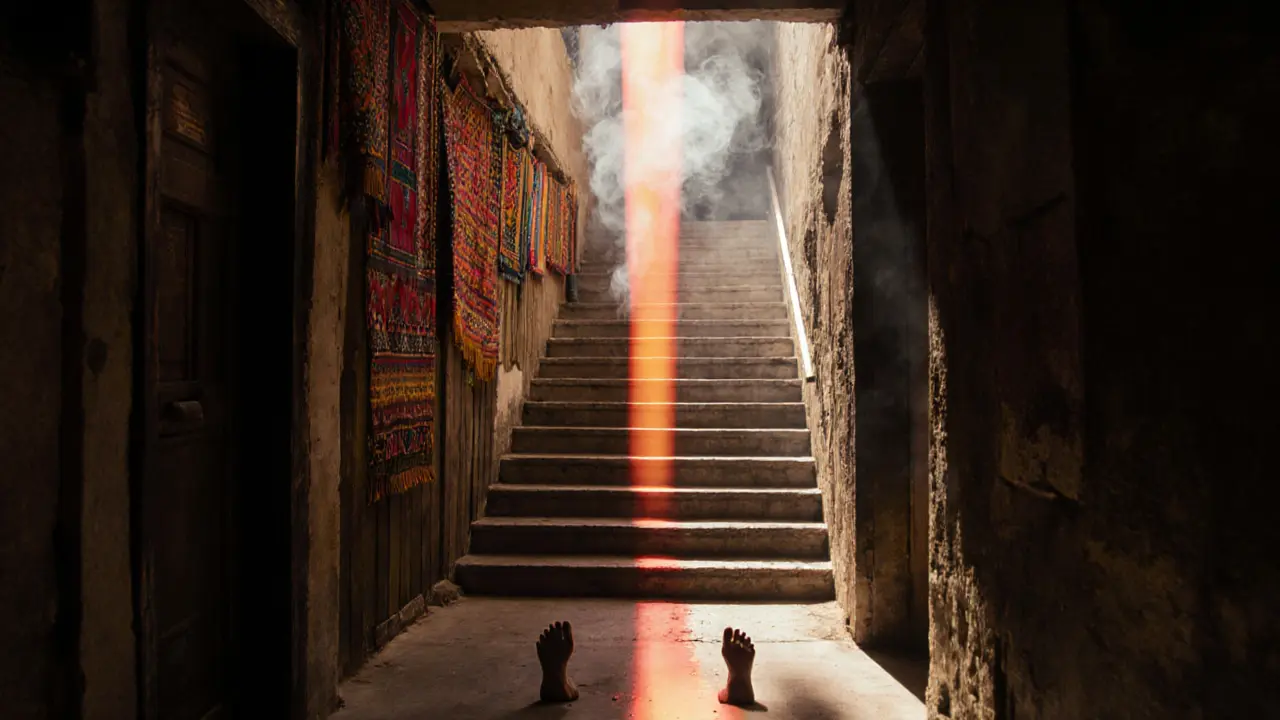
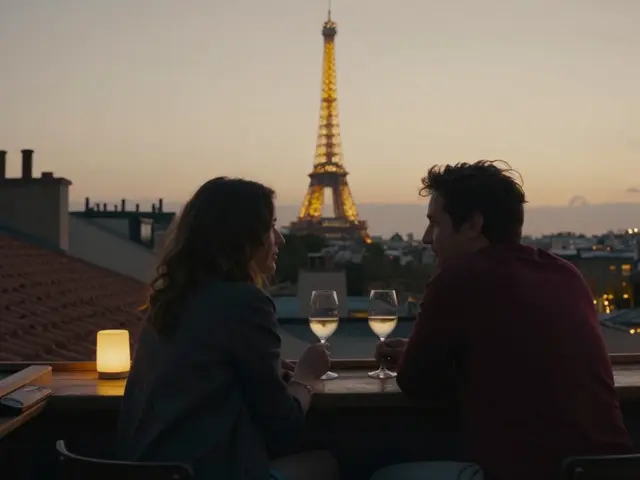
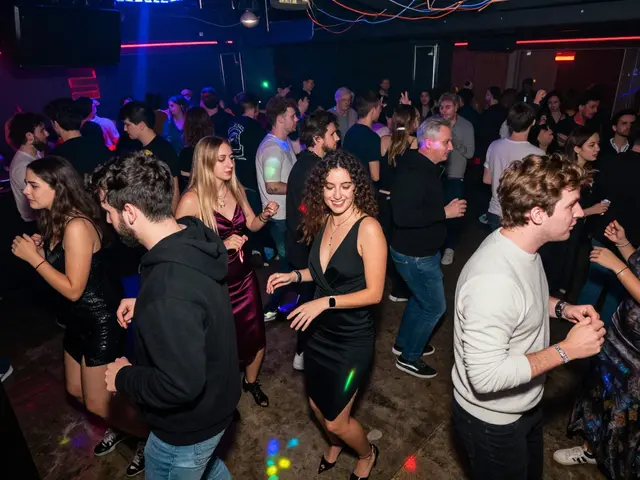
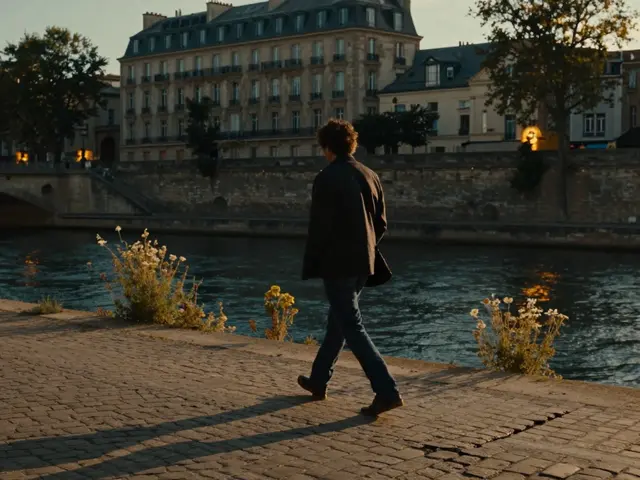
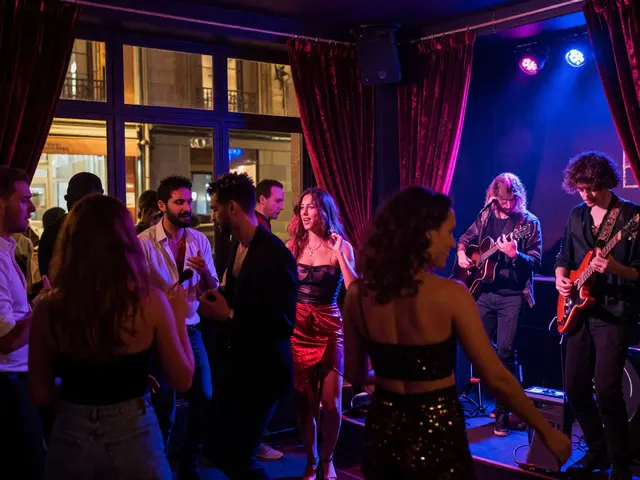
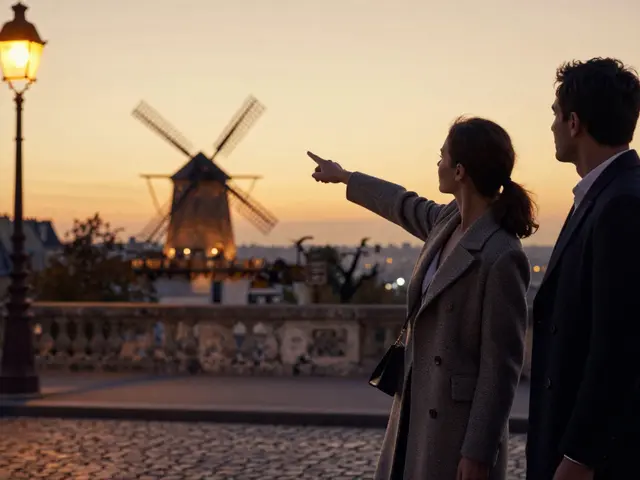
This place sounds like a hipster fantasy written by someone who’s never actually been to a real club. ‘Pay what you can’? Yeah, right-everyone’s paying 20 euros and pretending it’s ‘spiritual.’ And no security cameras? In Paris? That’s not trust-that’s negligence. If someone gets robbed or assaulted, who’s responsible? The incense?
Also, ‘no phones on the dance floor’? That’s cute. Until you realize half the crowd is there to post about it later. This isn’t sacred-it’s performative authenticity.
I’ve been to Pachamama twice. No exaggeration-it changed how I experience music. The sound doesn’t just play, it breathes. And the crowd? No one’s there to impress anyone else. You just feel it. No pretense. No filters. Just sound, sweat, and silence between beats.
It’s not perfect. It’s not always open. But when it is? It’s one of the few places left that feels human.
Let me tell you something, my brother. This is not a club. This is a spiritual reclamation. In a world where capitalism has turned every heartbeat into a product, Pachamama dares to be a sanctuary.
They don’t sell tickets-they sell soul. They don’t serve drinks-they serve communion. And that phone bin? That’s not a rule-it’s a revolution. You leave your digital chains at the door and step into the primal rhythm of the earth.
But let me ask you this: how many of you who read this post have ever danced until your tears mixed with the sweat on the floor? If you haven’t, you don’t understand what Pachamama is. You only understand the illusion of nightlife.
They say Paris is dead. I say Paris is alive-and it’s dancing in the basement of 12 Rue du Faubourg Saint-Martin.
And if you’re still scrolling through your feed instead of showing up? You’re already gone.
Man, I wish we had something like this back home. In Mumbai, every underground space gets shut down by the cops or turned into a cocktail bar with DJ nights. Pachamama proves you don’t need corporate backing to create magic.
That bit about the 70-year-old woman dancing in a floral dress? That’s the kind of moment that keeps me believing in humanity. No filters. No hashtags. Just motion. Just feeling.
If you ever make it to Paris, skip the Eiffel Tower selfies. Go find that candle. Let the bass pull you in. You won’t regret it.
Okay, but let’s be real-this place is the only reason I’m even considering a trip to Paris. I’ve been to clubs where the bouncers glare at you like you owe them money, and the music is just a looped EDM track with a laser show. This? This is the opposite. It’s like a cult, but a good one.
I’d show up in a hoodie and bare feet with zero euros in my pocket and still feel like I belong. The fact that they serve vegan empanadas from Oaxaca? That’s the cherry on top. I’m already planning my flight.
And if you think the phone bin is a gimmick, you’ve never danced until your soul cracked open. This isn’t nightlife. It’s healing.
Wait-no ID checks? No security? No official website? And you’re telling me this is ‘safe’? In Paris? The same city where tourists get pickpocketed on the metro? This sounds like a setup for a human trafficking ring or a rave that gets raided by the gendarmes.
Also, ‘pay what you can’? That’s just a fancy way of saying ‘we’re broke and hoping you’re dumb enough to overpay.’ And who’s the ‘local Parisian engineer’? Did he even have a license for that sound system? Probably not. This whole thing feels like a health code violation waiting to happen.
And don’t even get me started on the ‘no cameras’ rule. That’s not about presence-it’s about hiding something. I’m not going anywhere near this place.